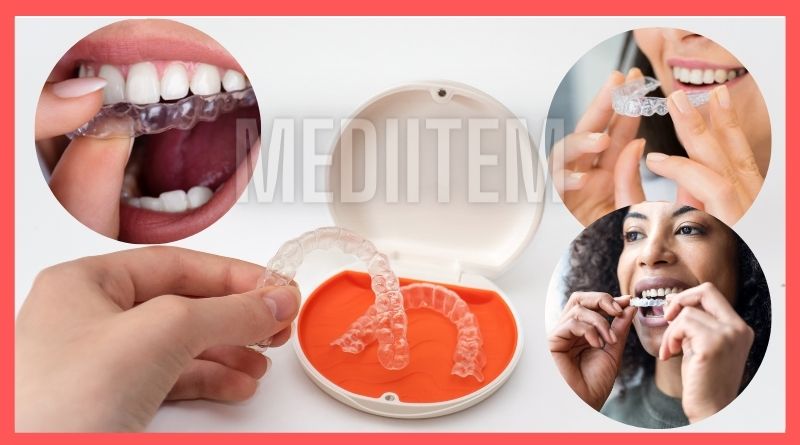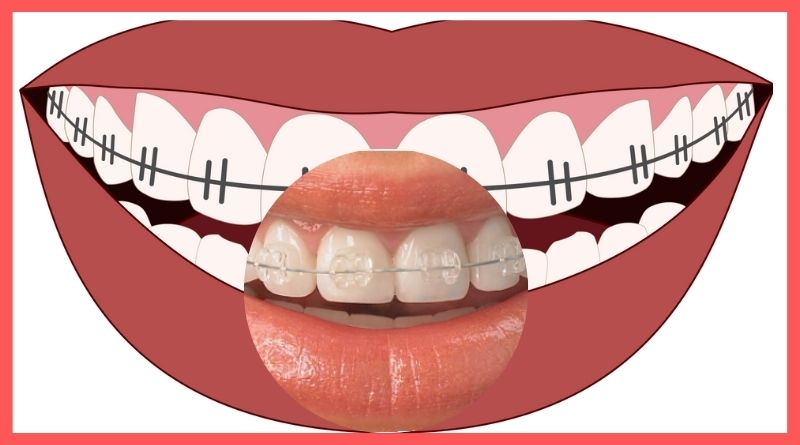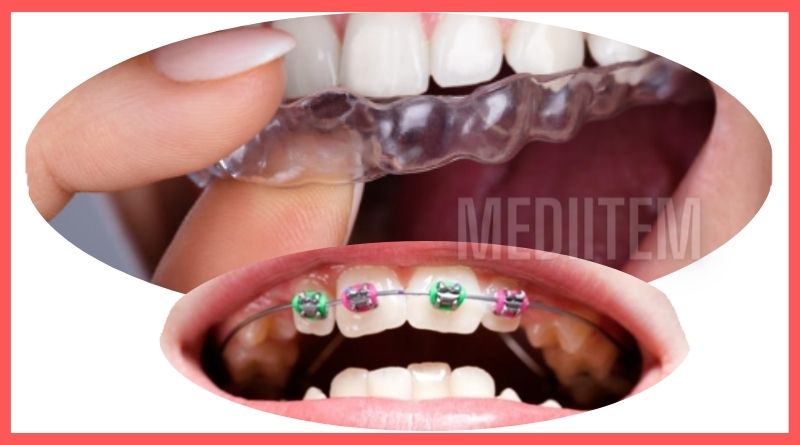In the best toothpaste for sensitive teeth and whitening to the vast market. choosing the right toothpaste can seem overwhelming. From anti-cavity pastes to whitening options, each type has a unique purpose. But, what type of toothpaste best suits your needs? The answer may surprise you. Read on to discover the type of toothpaste that could transform your oral care routine.
What is the best toothpaste?
We are seeing daily that many of you, shortly after meeting us, ask us “What is the best toothpaste?”That’s why nowadays we are going to speak to you about toothpaste and give an explanation for why the reply is no longer so easy. Before anything, We are seeing daily that many of you, shortly after meeting us, ask us “What is the best toothpaste?” That’s why today we are going to talk to you about toothpaste and explain why the answer is not so simple.
First of all, we have to clarify that the most important thing to have good dental hygiene is the technique and the brush we use. The best toothpaste in the world is of no use if we do not remove dental plaque and food debris with the brush.
But today we are going to talk about toothpaste, and we have to clarify that there is no best toothpaste for everyone. Each mouth has needs and, therefore, one toothpaste is better than another.
How to choose the best toothpaste for sensitive teeth
When choosing the best paste for sensitive teeth, you should pay special attention to whether it is capable of fulfilling its most important task: minimizing sensitivity to external stimuli and clogging the exposed dentin tubule.
When choosing a paste for sensitive teeth, you should look at whether it minimizes sensitivity to external stimuli and if it is capable of clogging the exposed dentin tubule. To achieve this, there are several substances used in toothpaste for tooth sensitivity. Pay attention to the following ingredients:
*Potassium nitrate: Helps desensitize the nerves in the pulp of the tooth.
*Stannous fluoride: has an analgesic effect and helps to occlude the dentinal tubules, making the teeth less susceptible to external stimuli.
*Amine fluoride: forms calcium fluoride on the surface of the teeth, causing the dentinal tubules to close.
*Tripotassium citrate: reduces the sensitivity of nerve endings.
*Hydroxyapatite: It is the main component of our teeth, and as an element in toothpaste it also helps close exposed dentinal tubules.
But that is not all. To relieve pain, it is also extremely important that toothpaste does not aggravate the problems of sensitive teeth. The greatest damage can be caused by the use of bleaching agents with a high abrasion coefficient, the so-called RDA.
The polishing substances in some toothpastes prevent clogging of the dentinal tubules. Additionally, they can further damage enamel and irritate sensitive gums. For a good hypersensitivity paste, the recommended daily dose should not exceed 30-40.
Additionally, you should make sure that the sensitive toothpaste you choose does not contain potentially irritating ingredients. First of all, these products should not contain alcohol. It has a drying effect on the oral mucosa and gums, contributing to their recession.
How does toothpaste work for tooth sensitivity?
Switching from your standard oral hygiene products to ones specifically designed to relieve tooth sensitivity will help reduce discomfort. Many solutions on the market have been developed for dental hypersensitivity. Before deciding on one or the other, it is important to know how they work.
A toothpaste for sensitivity should not only minimize pain but act on the causes. Unfortunately, these causes are usually varied and not always easy to determine. Therefore, a good toothpaste for sensitive teeth must fulfill several functions at the same time.
*Occlusion of the dentin tubules (that is, being able to plug them). Thanks to this, the nerve endings are unable to perceive the stimuli that cause pain.
*Decreased sensitivity (or desensitization) of nerve endings.
*Prevention of gum recession and exposure of the neck of the teeth.
*Effective plaque removal and prevention of excessive buildup.
*Relief from inflammation or irritation of the gums.
Which toothpaste is best for my problem?
On many occasions, we do not pay attention to the toothpaste we choose to brush our teeth. This purchasing process is essential if we keep in mind that depending on the disease we have, one is more recommended than the other.
CAVITIES:
For cavities, it is important to use toothpaste rich in stannous fluoride, as it helps reduce the acidity of plaque and saliva, preventing enamel demineralization. A good toothpaste with this element is Oral-B Pro Expert.
SENSITIVITY:
If we have sensitive teeth, it is best to use toothpaste with a high content of strontium acetate. It depolarizes the nerve, protecting it from the shock that causes pain. Rapid, from Sensodyne, with strontium acetate.
GINGIVITIS:
A toothpaste with triclosan is ideal in these cases: it is an antibacterial not recommended for children under six years of age. Colgate Total, from Colgate, works throughout the day.
TARTAR:
Sodium hexametaphosphate fights stains and tartar, preventing particles from adhering to the dentin. Whitening Toothpaste, from Supersmile, with calcium, is one of the best in this area.
Best toothpaste for sensitive teeth
The best toothpaste for sensitive teeth and whitening are those that fulfill their main function: cleaning teeth and maintaining good oral health. When choosing a toothpaste, it is important to consider the ingredients and each person’s specific needs.
One of the most popular options is whitening toothpastes, which contain ingredients such as hydrogen peroxide or baking soda to help remove stains on your teeth. However, it is important to note that these pastes can be abrasive and should not be used too frequently.
Another option is toothpaste for sensitive teeth, which contains ingredients such as potassium nitrate or stannous fluoride to help reduce tooth sensitivity. These pastes are ideal for people who experience pain or discomfort when eating or drinking hot or cold foods. In general, it is advisable to choose a toothpaste that contains fluoride, as this ingredient helps prevent tooth decay and strengthens tooth enamel.
In short, when choosing a toothpaste, it is important to consider the ingredients and each person’s specific needs. The best toothpastes are those that fulfill their primary function of cleaning teeth and maintaining good oral health. When choosing a toothpaste, it is advisable to choose one that contains fluoride and consider options such as whitening or sensitive toothpaste depending on individual needs.
Colgate
Colgate is a globally recognized brand and offers a wide range of toothpaste for various needs such as cavity control, sensitive teeth, and teeth whitening.
A good example is Colgate Total Advanced Healthy Enamel, it is a toothpaste with antibacterial ingredients and 24 hours of protection for teeth, tongue, cheeks, and gums that improves the cleanliness of your mouth.
Sensodyne
It is known for its toothpaste designed especially for people with sensitive teeth. Helps relieve tooth sensitivity. As an example, we can cite Sensodyne Sensitivity & Gums. Its dual-action formula creates a protective layer over sensitive areas, effectively relieving tooth sensitivity, and eliminating plaque to help reduce gum problems.
Parodontax
Specializing in gum care, Parodontax offers toothpaste designed to prevent and treat gum problems, such as gingivitis. Parodontax Gums Breath and Sensitivity Toothpaste is a toothpaste with fluoride for daily use that helps us maintain healthy gums and strong teeth. It helps eliminate bacteria that cause bad breath and helps prevent sensitivity by forming a protective layer.
Oral-B
Oral B is known for its electric toothpaste and toothbrushes. They offer toothpaste for various dental problems, such as strengthening enamel and protecting against cavities. For whitening, Oral-B 3D White Luxe Perfection Whitening actively removes up to 100% of surface stains in hard-to-reach areas thanks to its deeply penetrating foam.
Bexident Gums Toothpaste
With Bexident Gums toothpaste from ISDIN, you will be able to prevent gingivitis, avoiding the first symptoms such as bacterial plaque, bleeding, or inflammation of the gums.
Signal Anticavity Protection
This Signal toothpaste has long-lasting anti-cavity action and deep cleaning, in addition to containing calcium and fluoride to take care of your teeth.
Benefits of the best toothpaste for sensitive teeth
Therefore, the first thing is to identify what type of needs our mouth has (what is our weak point) to use the paste that best suits us:
Tendency to cavities:
If every time you go to the dentist they diagnose you with a new cavity or you have a weakness for sugars, surely your biggest problem is the tendency to dental cavities, either due to the structure of your teeth or the diet you eat, The thing is that you need a paste with fluoride and designed to reduce tooth decay. Such as the new Vitis anti-cavity toothpaste or Fluocaril toothpaste.
Sensitivity:
Are you one of those who can’t get enough of a drink or find it difficult to eat ice cream? Well, what you have to look for is toothpaste against sensitivity, the main ingredient usually being potassium nitrate. For this problem, Desensin, Sensodyne, or SensiLacer work very well, but they take almost a week to take effect, so don’t despair if after two days of use, you don’t notice anything, give it at least a week using it 3 times a day and you will see how it works.
Tendency to gingivitis:
Do you tend for your gums to bleed? In these cases, the most important thing is that the brushing technique is effective because if a gum bleeds it is because it is inflamed and they only become inflamed if there is bacterial plaque that is altering it. Even so, there is a toothpaste that helps control that bleeding that can sometimes be accentuated due to hormonal issues or medications. In these cases, Vitis gums or GingiLacer works very well.
You want whiter teeth:
Here you have to be very careful when choosing toothpaste since you have to avoid all those that whiten based on abrasive particles that wear down your teeth. You have to look for those that contain carbamide peroxide, although as it is regulated by law, they can only contain 1% of this product so the results are very inconspicuous.
How to know the best toothpaste for sensitive teeth
It depends on several factors that you must take into account, such as:
*Fluoride. Fluoride is an important ingredient in quality toothpaste as it helps prevent cavities from forming and strengthens tooth enamel. Make sure the toothpaste contains fluoride in an adequate amount.
*Dental seal of approval. Look for products that have approval from dental organizations or quality seals.
*Personal needings. Some toothpastes are designed for sensitive teeth, swollen gums, or teeth whitening. Choose one that suits your particular needs.
*Additional ingredients, such as baking soda for whitening, herbal extracts for bad breath, or antimicrobial agents to fight bacteria.
*Flavor and texture. Choose a toothpaste with a flavor and texture that you like, as this will motivate you to brush your teeth regularly.
*Price and availability. Make sure the toothpaste you choose is within your budget and is easily available in your area.
*Consult your dentist. Your dentist’s opinion is valuable. Ask him what toothpaste he recommends specifically for your dental needs.
What is the best toothpaste for sensitive teeth for me?
Therefore, the first thing is to identify what type of needs our mouth has (what is our weak point) to use the paste that best suits us:
Tendency to cavities:
If every time you go to the dentist you are diagnosed with a new cavity or you have a weakness for sugars, surely your biggest problem is the tendency to dental cavities, either due to the structure of your teeth or the diet you eat, The best toothpaste for you is a toothpaste with fluoride and designed to reduce tooth decay. Such as the new Vitis anti-cavity toothpaste or Fluocaril toothpaste.
Sensitivity:
Are you one of those who can’t get enough of a drink or find it difficult to eat ice cream? Well, what you have to look for is toothpaste against sensitivity, the main ingredient usually being potassium nitrate. For this problem, Desensin, Sensodyne, or SensiLacer work very well, but they take almost a week to take effect, so don’t despair if after two days of use, you don’t notice anything, give it at least a week of using it 3 times a day and you will see how it works.
Tendency to gingivitis:
Do you tend for your gums to bleed? In these cases, the most important thing is that the brushing technique is effective because if a gum bleeds it is because it is inflamed and it only becomes inflamed if there is bacterial plaque that is. Even so, there is a toothpaste that helps control this bleeding that sometimes, Due to hormonal issues or medications, can be accentuated. In these cases, the best toothpaste would be Vitis gums or GingiLacer.
You want whiter teeth:
Here you have to be very careful when choosing toothpaste since you have to avoid all those that whiten based on abrasive particles that wear down your teeth. You have to look for those that contain carbamide peroxide, although as it is regulated by law, they can only contain 1% of this product so the results are very inconspicuous, which is why we, at Llerandi & Béjar, recommend in-clinic whitening and forget about it. of this type of toothpaste.
So in summary, everyone has to look for the best toothpaste that suits them and at Llerandi & Béjar we will be happy to try to help you in your search.
We have to clarify that the most important thing to have good dental hygiene is the technique and the brush we use. The best toothpaste in the world is of no use if we do not remove dental plaque and food debris with the brush.
But today we are going to talk about toothpaste, and we have to clarify that there is no best toothpaste for everyone. Each mouth has needs and, therefore, one toothpaste is better than another.
Read more: Teeth sensitivity after whitening
Conclusion:
When choosing the best toothpaste for sensitive teeth and whitening. we must take into account factors such as age, the sensitivity of our teeth, or our eating habits. It should be chosen based on what our teeth require to have good oral health. Depending on the variant, some have specific ingredients to treat depending on the type of problem, and others simply to prevent.
The most common are pastes with fluoride. These are perfect for protecting our teeth against cavities. It is the primary ingredient that toothpaste must contain. It is usually accompanied by other agents such as triclosan, which help control plaque, tartar, or periodontal diseases. Also, other ingredients such as xylitol help prevent cavities.
As we see, numerous ingredients treat different pathologies. So the first thing we should do is determine if we need to treat or prevent a problem more insistently. The idea is to ask your dentist since it will be the most professional opinion that we can obtain. In addition, she will know our needs and if our teeth require specific treatment. Let’s see what types of toothpaste exist and which one is the most appropriate for our case.
Read more: Tooth sensitivity to cold: cause, symptoms, remedy & more
Recommended product
1) Tom’s of Maine Fluoride-Free Rapid Relief Sensitive Toothpaste…
2) Crest Pro-Health Gum Detoxify Toothpaste…
3) Sensodyne Rapid Relief Sensitive Toothpaste…
4) Colgate Sensitive Toothpaste…
5) Tom’s of Maine Fluoride-Free Whitening Natural Toothpaste…
Please subscribe to my channel and follow
YouTube


